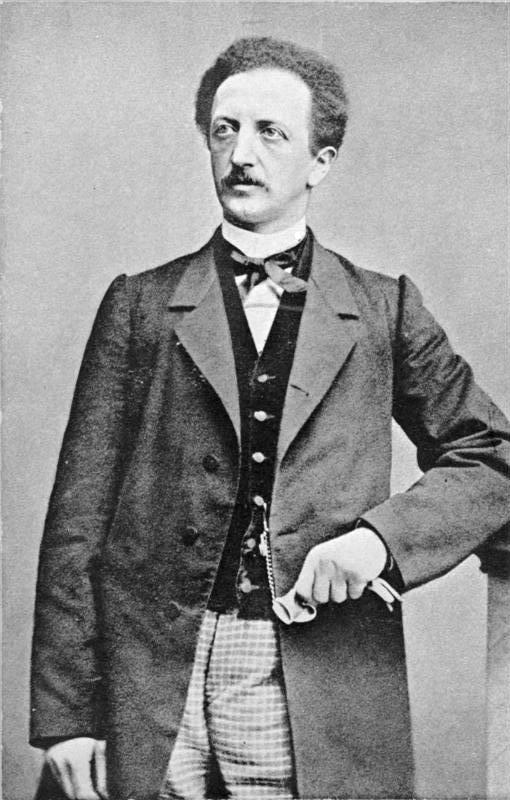Ferdinand Lassalle | |
|---|---|
 | |
| Born | 11 April 1825 Wrocław, Kingdom of Prussia |
| Died | 31 August 1864 Carouge, Switzerland |
| Nationality | German |
Ferdinand Lassalle (11 April 1825 – 31 August 1864) was a German utopic socialist. He believed that workers should receive the undiminished product of their labour, while Marx believed a sum had to be deducted to support society as a whole and to replace damaged means of production.[1] Lassalle also opportunistically supported Prussian hegemony.[2]
Relations with Marx
Lassalle befriended Marx during the Revolutions of 1848, having met before through the Young-Hegelian circle. Both of which would maintain contact through correspondence until around 1862. Marx, despite replying to Lassalle's letters in a warm tone, grew to dislike Lassalle overtime, which can be seen in letters he sent to Engels.[3]
Ideology
Lassalle, in contrast to Marx, believed that socialism could be achieved through the means of parliamentary reformism such as electoralism along with universal suffrage.[4][5] Lassalle rather than condemning private property entirely, stated that his "state socialism" ought to merely "fix" the social ill-effects of capitalism through state control.[6] Because of this, Lassalle is often praised by social democrats, particularly those of the SPD, the party that he co-founded.
Criticism
Marx criticized Lassalle's beliefs in Critique of the Gotha Programme, describing him as a falsifier who spread bourgeois phrases in an intentional manner, criticizing his concept of an "iron law of wages", a "free state" and his concept of democracy being "control by the rule of the people of the toiling people", in which the majority of the "toiling people" in Germany consisted of peasants, not proletarians.[1] Marx was heavily against Lassalle's proposal of improving the current state of things, rather than abolishing it.[1] Rosa Luxemburg considered Lassalle an idealist and opportunist who merely advocated for bourgeois reforms.[4]
References
- ↑ 1.0 1.1 1.2 Karl Marx (1875). Critique of the Gotha Programme. [MIA]
- ↑ Friedrich Engels (1865). Engels To Marx in London.
- ↑ Karl Marx (1862). Marx To Engels In Manchester.
- ↑ 4.0 4.1 Rosa Luxemburg (1904). Lassalle and the Revolution. [MIA]
- ↑ Eduard Bernstein. Ferdinand Lassalle as a Social Reformer: 'Breach with the Progressist Party – The Open Reply Letter; its political portion.'. [MIA]
- ↑ Ferdinand Lassalle (1863). Open Letter to the National Labor Association of Germany. [PDF] [MIA]